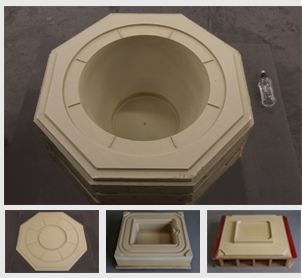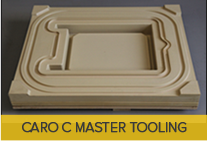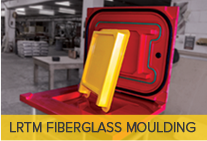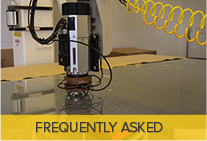In 1988, Jackson Industries was the first company in NZ to enter the sector manufacturing large envelope tooling. Since then, Jackson has been at the forefront of envelope tool production and advancing tooling methods within the sector.
A low cost Jackson Industries & Nuplex Industries innovation:
The Past:
Traditionally, “Pattern makers”, would manufacture wooden patterns in the composite concrete, roto-moulding & refractory industries, which had recurring issues throughout the industry. Accuracy was consistently lost during the painting & finishing stages and was considered a fact of life, this was irrespective of the advancement in CNC technology.
The Present:
The next generation to be developed was Tooling board products. Tooling boards still have high over head costs, which results in this process being out of reach in budgetary terms for all but the highest end application. This method still requires manual/skilled application of film type release agents in all but the most simple applications. Porosity is also still an issue in the sector, which requires engineering & lamination to get to stock-block sizes required for CNC machining. Stock “Aware” machining operations are still a real day to day struggle and machine risk with manually fabricated stock. Jackson, being an early adopter and innovator made a large investment in machinery for the putty over polystyrene substrate technique, quickly found the inherent limits and frustrations of the method, and actively pursued something better.
The Future:
Having a daily involvement in the utilization & advancement of Polyester resins within our internal Electrical cabinet manufacturing plant, Jackson has had a long relationship with Nuplex industries over the last 5 years. This partnership has worked to develop a low cost tool stock product for use with low temp cure processes such as RTM Lite (LRTM), Low-profile tooling systems such as generating foundry patterns, fiberglass production moulds for high volume production, and low temperature cure pre-preg systems.
The product has been developed as a low-exotherm two part system that can be cast into either crude form-work or machined urethane foam, this product can be molded into any dimensions with zero porosity which navigates around the hugely wasteful laminated tooling board “solution”. The biggest single stock casting the company has done to date is 600kg, which was machined the next day into a GRP production tool, with no risk of exotherm related fire or cracking and no porosity. It was soon ready for a quick wipe of “Free-kote(tm)” and to go straight into production. To put this into perspective in terms of costs for manufacturing, CaroC easily halves material costs, utilizes 1/4 of the labor required to prepare stock for machining, and completely removes risks brought on by spray-film release agents. In the majority of applications CaroC completely removes hand-fairing of master tools, even on the most “flimsy” machining centers, only the lightest polishing of subsequent profile tooling systems is required. For Jackson internal LRTM production, Jackson no longer make “plugs”.
Instead Jackson rely completely on 3D cad models of split tooling, with the halves not coming together all the way until production. Internally, this is a 5 day turnaround in a profile system, CaroC can also be used directly as the LRTM tool in short-run circumstances. CaroC is limited to around 45 degrees Celsius soaked. Call our design team to discuss further how CaroC can improve your project, As a primary producer, we have large scope to change formulation to suit your application.





